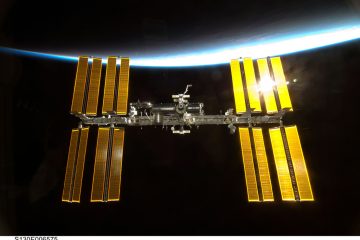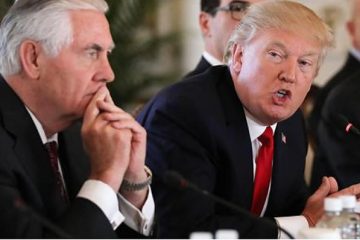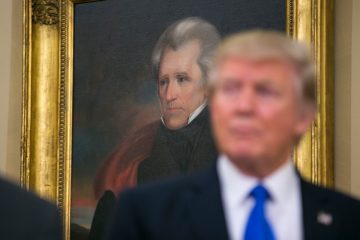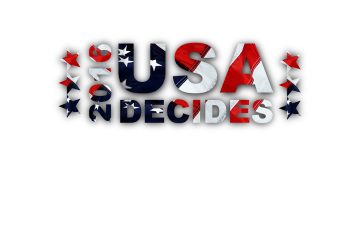Shinzo Abe or Abe Shinzo: From Western Order to International Order?
To what extent is the international community truly international? And, to what extent are non-Western norms and practices excluded? The choice of language in international relations is one important aspect of this broad topic. Each international organization has official languages. The United Nations, for example, has six official languages, and the European Union 24, though only three – English, French and German – are used in procedures of the Commission. The choice of language is partly driven by the need to communicate to the widest number of people, but it also has an endogenous relationship with state power. Powerful states promote the languages they use, and in turn, others must learn their languages to participate, propagating their power. An important aspect of the choice of …

China’s Belt and Road – Threat to or Opportunity for the Liberal Order?
In 2013, Xi Jinping announced the idea of building a ‘Silk Road Economic Belt’ across Eurasia. A few months later, he proposed a ‘21st Century Maritime Silk Road.’ Five years on, these two projects have been merged in what is arguably the most ambitious economic and diplomatic enterprise of the 21st century: the Belt and Road Initiative (BRI), or One Belt One Road (OBOR). BRI involves over 80 countries across three continents and along six economic “corridors”, plus an additional route to the Arctic. It encompasses 900 infrastructure and development projects with a combined cost of US$900 billion. The Belt and Road Initiative includes projects such as the China-Pakistan Economic Corridor (CPEC), the trans-Eurasian railways network, Ethiopia’s Eastern Industrial Zone …

Bizarre, strange or last straw? Slideshows in International Relations
Last week, Israeli Prime Minister Benjamin Netanyahu made headlines with his PowerPoint presentation on Iran’s nuclear program. Media outlets talked of a ‘bizarre PowerPoint’, a ‘strange slideshow’ and deemed it unnecessary for Netanyahu ‘to convince us that you don’t support the Iran nuclear deal’. The slideshow quickly became a twitter meme. What these reactions made me recall is how rare it is for heads of state or government officials to use PowerPoint slides, or any type of visualizations, to convey and illustrate information of international concern to the public. While PowerPoint is a medium of debatable value, nonetheless, we all use it frequently to present complex information. It is the default medium in business and academia, but it is not …

US Space Policy and Strategic Culture
The United States has a consistent Strategic Culture, centered on a sense of exceptionalism, values-driven foreign policy, casualty aversion, as well as strong leadership. These features reflect in its space policy and ambitions, where the US has cooperated with other nations but assumes a position of natural leader. It remains to be seen how this role will evolve – although the sense of exceptionalism may endure – as new actors, including private companies, make their way into space. Why Strategic Culture Matters Developed in the 1970s, “Strategic Culture” is a concept used to analyze the role of culture and national idiosyncrasies in shaping national security decisions. As with many paradigms developed during the Cold War, it emerged in the context of …

Trump & Tillerson: The End of a Rocky Relationship
In yet another major shake up of his administration, Trump, via Twitter, has declared that he will be replacing Secretary of State Rex Tillerson after only fourteen months, the shortest occupation of the position in modern history. Tillerson will be replaced by CIA Director Mike Pompeo after months of both public and private disputes between the former head of Exxon Mobil and the US President. Administration officials have claimed Tillerson was unaware of his imminent release, allegedly learning only briefly of his impending firing. For those who have been keeping up to date with the inner machinations of the controversial administration, it is concurrently unsurprising that Tillerson has met this fate, and surprising that it has taken this long. The …

The Jacksonian Foundations of Trump’s American Foreign Policy
One year has passed since Donald Trump’s inauguration as president and his promise to reorient American foreign policy away from a liberal internationalist agenda to putting “America First.” Since January 2017, the Trump administration has jettisoned major diplomatic achievements of the Obama years – the TPP and the Paris Climate Change Accord. Further, he has called for a revision of the Iran Nuclear Deal and NAFTA, escalated the nuclear standoff with North Korea and threatened to disrupt relations with its long-term allies in Europe and Asia. The main features of the new American foreign policy so far have been: A transactionalist, business-style approach to international bargains, with the aim to negotiate or re-negotiate treaties on more favourable grounds for the …

TRUMP’S IMPACT ON INTERNATIONAL RELATIONS
It is slowly dawning on us all that Donald Trump was right when he said that the American election day ‘will be Brexit times 10’. In my experience, 4,000 miles across the Atlantic, people looked ten times more shocked when they saw Trump give a victory speech than when it became clear that their country had decided to leave the European Union. Much has been written about Trump’s hateful rhetoric, which has offended 282 people and places on twitter alone, and the possible ramifications of his breaking long-established domestic norms. But it is the global implications of a Trump presidency that worries people across the globe. If he makes true on his campaign promises, we would see a large-scale withdrawal …









